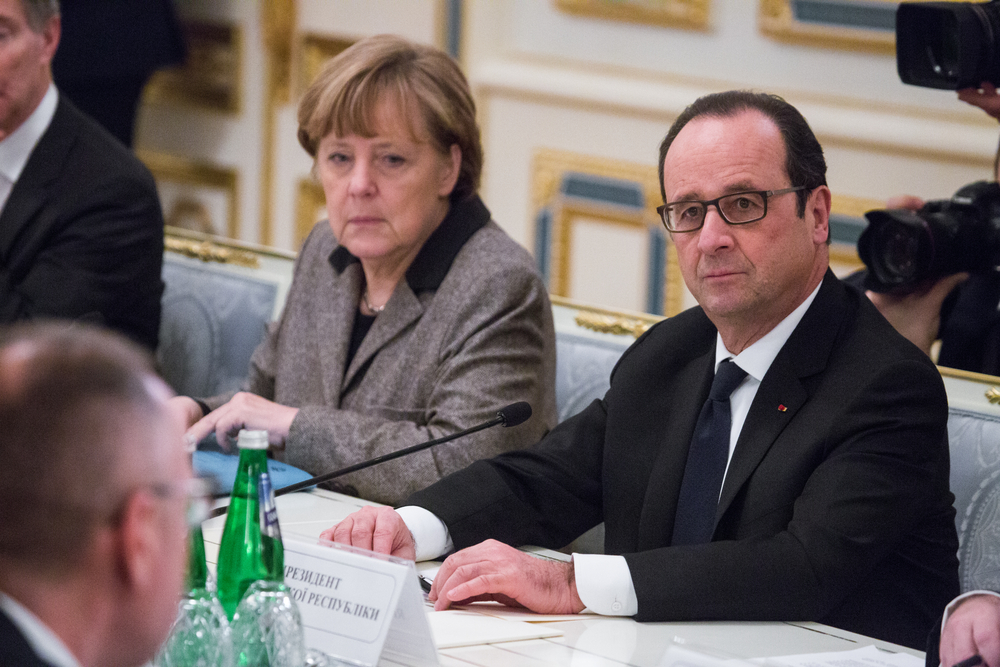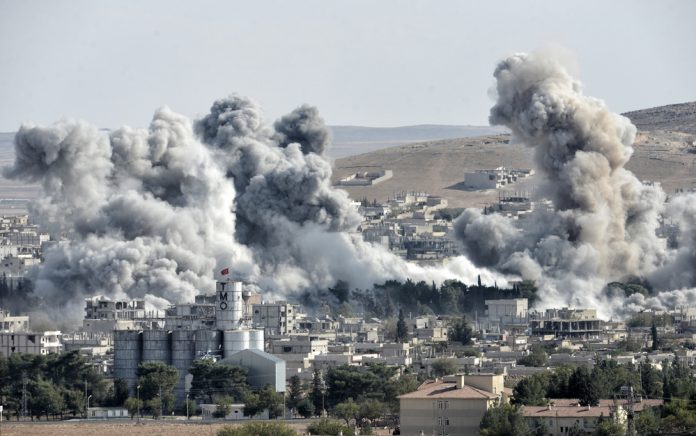US and Russian peace negotiations over Syria continue to face further setbacks following continued destruction after Alleppo air raids on last Monday.
Earlier last week, several air raids and bombings by the Russian-regime has led the U.S to limit its co-operation over the future of the region. The attacks hit the M10 hospital, one of the few remaining significant medical facilities in opposition areas of Aleppo, for the third time in a week.
The situation in Syria arguably presents one of the most stubborn political crises that the international community has had to face. Whilst many assert that a New Cold War dynamic is continuing to emerge between the two superpowers, the Syrian Civil War rages on with seemingly no foreseeable solution for a regional humanitarian crisis. As the tentative diplomatic situation continues to play out in the Middle East, and as the superpowers continue to get caught up in an archaic power struggle – the Syrian people are still faced with no forseeable signs of relief from the civil war that has embroiled the region since 2011.
Consequently, the Russo-US peace deal was clearly an encouraging sign in an otherwise seemingly intractable five year conflict. However, these latest series of setback reveals the true depth of the issues and geo-politics surrounding the conflict.
The US has thus far suspended continued Russo-American negotiation talks after the US argued that Russia had failed to uphold its requirements as stipulated in the September 9th agreement, as Alleppo indeed demonstrates. Under the agreement, Russia is required to provide humanitarian aid to major cities such as Alleppo.
“Of course I hope that there is not going to be a new Cold War,” Vitaly Churkin, Moscow’s U.N. ambassador, said late last Monday. He said that disagreements between the two nations have been “overdramatized” and reaffirmed a commitment to resuming negotiation talks.
US Secretary of State, John Kerry has nonetheless stated that “the US is not abandoning the pursuit of Peace”. However, a week later and minimal progression in the way of stabilizing the region has yet to have been made.
This week, French President Hollande was particularly condemning, suggesting that Russia’s involvement in the worsening situation of Alleppo could amount to war crimes, a claim that Putin has continued to dismiss as ‘rhetoric’.
The preoccupied mind of Europe
The Syrian refugee crisis dominated European headlines last summer, as the continent expressed collective outrage over the lack of compassionate response to refugees escaping civil war. However, tackling the mass displacement of the Syrian people has increasingly taken a backseat as the European Union grapples with ensuring its own survival.
Germany, initially one of the most receptive European nations and amongst the most powerful, is tackling its own domestic troubles as Merkel faces mounting pressure over the future of Deutsche Bank and sliding poll numbers. Italy on the other hand, is preoccupied with an upcoming referendum on constitutional reform and continued economic woes, as its bonds continue to under perform Spain.
France, however has been vocal in pressuring both countries regarding the agreement. The nation has been particularly affected by the rise of IS, with an unprecedented rise in harrowing terrorist attacks in the last year. However, like many other European nations, France has its own potentially de-stablising elections to come. Moreover, Britain continues to be paralysed by Brexit negotiations and a severely weakened pound.

The path to resolution
As various nations continue to resort to bombing Syria to weaken the Islamic State, they continue to ultimately formulate an inadequate response to the challenge of terrorism. Terrorism and extremism are very 21st century threats, which are motivated by a complex set of dogmatic ideologies and grievances. Ultimately, you cannot diffuse ideology through conflict – as the war on terror has continually exposed.
Whilst relations between Russia and the U.S continue to worsen, it remains paramount that both nations nonetheless persevere to build upon the peace deal to put an to end to the foreign policy muscling in Syria and beyond.
Unfortunately, due to the complexity of the conflict, formulating a concrete solution remains a tentative endeavor. As Syria is beholden to many different conflicting factions, global efforts need to be eventually made to help Syria to rebuild its system of governance. Potentially, a system of federalism presents the most effective way to appease these multiple factions and ensure Syria can eventually be in the position to rebuild law and order within the nation.
Moreover, the outcome of the upcoming US election no doubt remains an important decider on the future of peace in Syria, as the U.S remains a key global hegemonic power. Many have thus far asserted that the election of Clinton would ultimately mark minimal change from the current administration’s approach, as she is viewed as a key architect of US foreign policy under Obama. Conversely, Donald Trump’s proposed approach is more difficult to ascertain, given the candidates own unpredictability. Trump, however, throughout his campaign trail has been consistently complimentary of Putin’s regime, which could be indicative of greater foreign policy collaboration in respect to Syria. The future of the peace deal and Syria, however, as of currently still remain murky.

